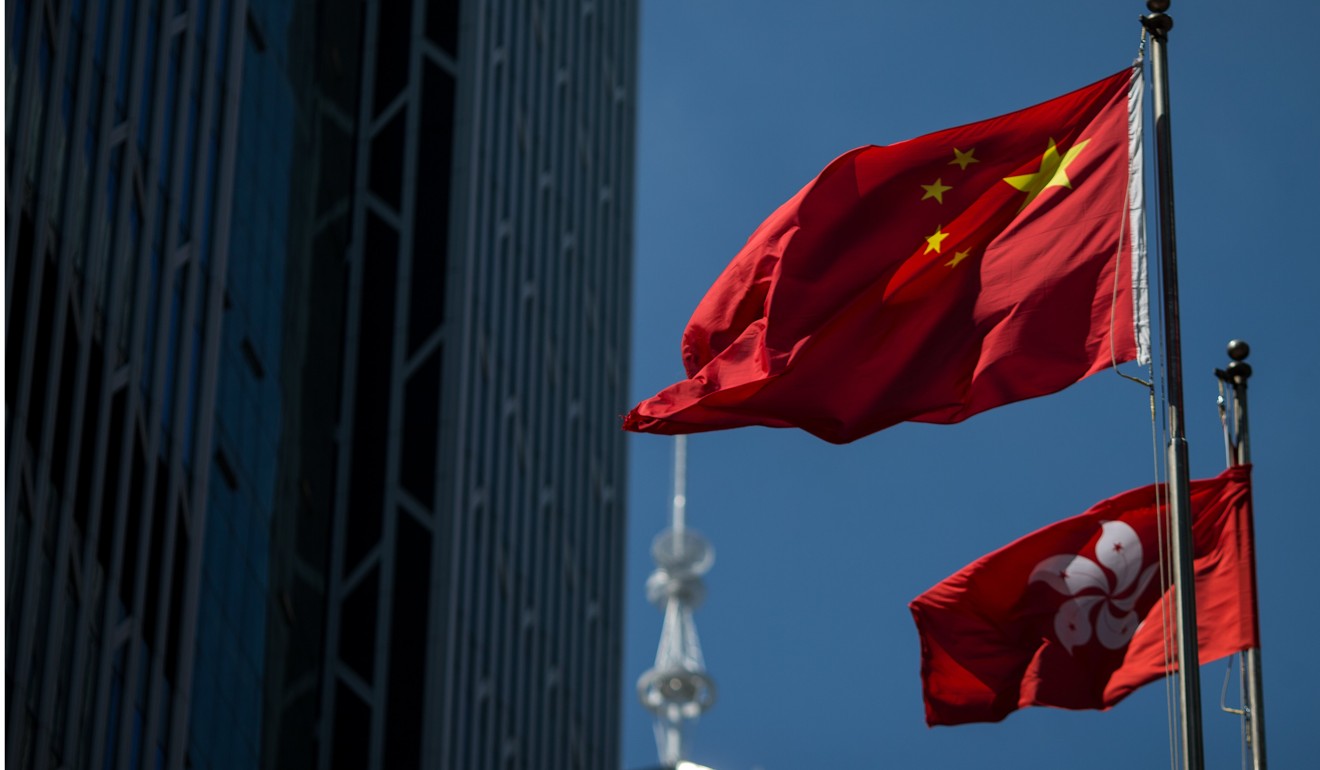
Hong Kong should be praised by US, not dragged into trade war, Civic Party head Alan Leong says in Washington
Speaking at Heritage Foundation event, opposition politician says US actions will drive China away from values like democracy, freedom and rule of law
A vocal critic of China’s handling of Hong Kong affairs has surprisingly spoken out in defence of Beijing over the US-initiated trade war at a seminar in Washington.
Civic Party chairman Leong also said it was “just disappointing” that the U S had dragged Hong Kong into its trade dispute with China when the city had “always been the voice of free trade and a vanguard of multilateral trade”, and deserved praise from the US instead.
US and China’s trade clash to take centre-stage at WTO
He was speaking on Thursday at a seminar hosted by US conservative think tank The Heritage Foundation, during his and his party leader Alvin Yeung Ngok-kiu’s week-long visit to the States that began on Monday.
While Leong also discussed concerns over Beijing’s tightened grip on Hong Kong in his address at the seminar, he devoted a large part of it to the trade dispute.
“War is not to be declared lightly, particularly when America cannot be sure about a decisive win without dealing severe blows to its own economy,” Leong said.
“As America raises tariffs, China will find trade partners unreliable and increasingly distrust international trade. This can result in China recoiling to its shell with [President Xi Jinping] becoming more of a nationalist authoritarian leader.
“A trade war would only drive China further away from universal values such as democracy, freedom and rule of law.
“It would be best if America would continue to be a positive influence on China by working collaboratively on fair dealings and reciprocal treatments in business, rather than building up more barriers to trade by waging a trade war.”
Leong also criticised the US for levying prohibitive tariffs on steel and aluminium exports from Hong Kong.
“America needs no reminder of Hong Kong’s importance as a showcase of values and institutions practised by liberal democracies with success among ethnic Chinese in a place of Chinese culture,” he said.
“The more Hong Kong is criticised for its embrace of the rule of law, free trade, fair competition, freedoms and individuals’ liberties, the more we are entitled to encouragement from America … and not to be trampled upon by it.
“The suggestion of a prohibitive levy on Hong Kong’s exports is just disappointing.”

Speaking at the same seminar, Civic Party leader Yeung said that dragging Hong Kong into the Sino-US trade war would give the international community the impression that Hong Kong was only an ordinary mainland city.
“If you think China has done all these wrongs on trade and in Hong Kong, then why should you penalise the victim? We have been doing everything we can to uphold the trade obligations.”
In messages posted on his Facebook page, Leong also said they had argued for Hong Kong to be excluded from trade sanctions by the US and that the American politicians they met had expressed “understanding” and “support” of their views.
In March, US President Donald Trump’s administration announced tariffs on steel and aluminium products imported to the US, except for jurisdictions granted exemptions. Hong Kong, though considered an independent economic entity, was not exempted.
According to the Hong Kong government, in 2016, the city actually suffered from a trade deficit of more than US$27 billion with the US. Hong Kong’s exports of aluminium products to the US in 2016 and 2017 were US$43 million and US$39 million respectively, only about 9 per cent and 8.7 per cent of Hong Kong’s total exports of aluminium products in the respective years.
The value of Hong Kong’s re-exports of steel products to the US in 2016 and 2017 were US$1.35 million and US$1.76 million respectively.
What is the United States visa waiver scheme that envoy Kurt Tong wants to be applied to Hong Kong?
The Hong Kong politicians said at the seminar that the US should continue keeping an interest in the city and should speak up when things went wrong here.
In response to a question from the floor about granting Hong Kong people visa-free travel to the US so long as the city had the autonomy promised by Beijing in its mini-constitution, the Basic Law, Leong said the idea was “fair” and “to be welcomed”.
Guest speaker Minky Worden, Human Rights Watch director of global initiatives, criticised the British government for failing to take a tougher stance against China on Hong Kong affairs.
Leong and Yeung are expected to meet trade officials in Washington on Saturday and are expected to return to Hong Kong early next week.
During their trip, they have held talks with Nancy Pelosi, minority leader of the House of Representatives, and Susan Thornton, acting assistant secretary of state in charge of East Asian and Pacific affairs. They also met House foreign affairs committee chairman Ed Royce and Ted Yoho, the chairman of the committee’s subcommittee on Asia and the Pacific.
Developments in Hong Kong have become an issue of growing concern in Washington in recent years.
The US State Department’s most recent human rights report singled out Beijing’s “encroachment” on Hong Kong’s autonomy as being among the most significant human rights issues in the city.
In its report to Congress last November, the US-China Economic and Security Review Commission said Hong Kong’s “one country, two systems” framework – the model under which Beijing governs the city – had been “called into question” as the city shifted closer to the mainland amid increasing pressure from the central government.

